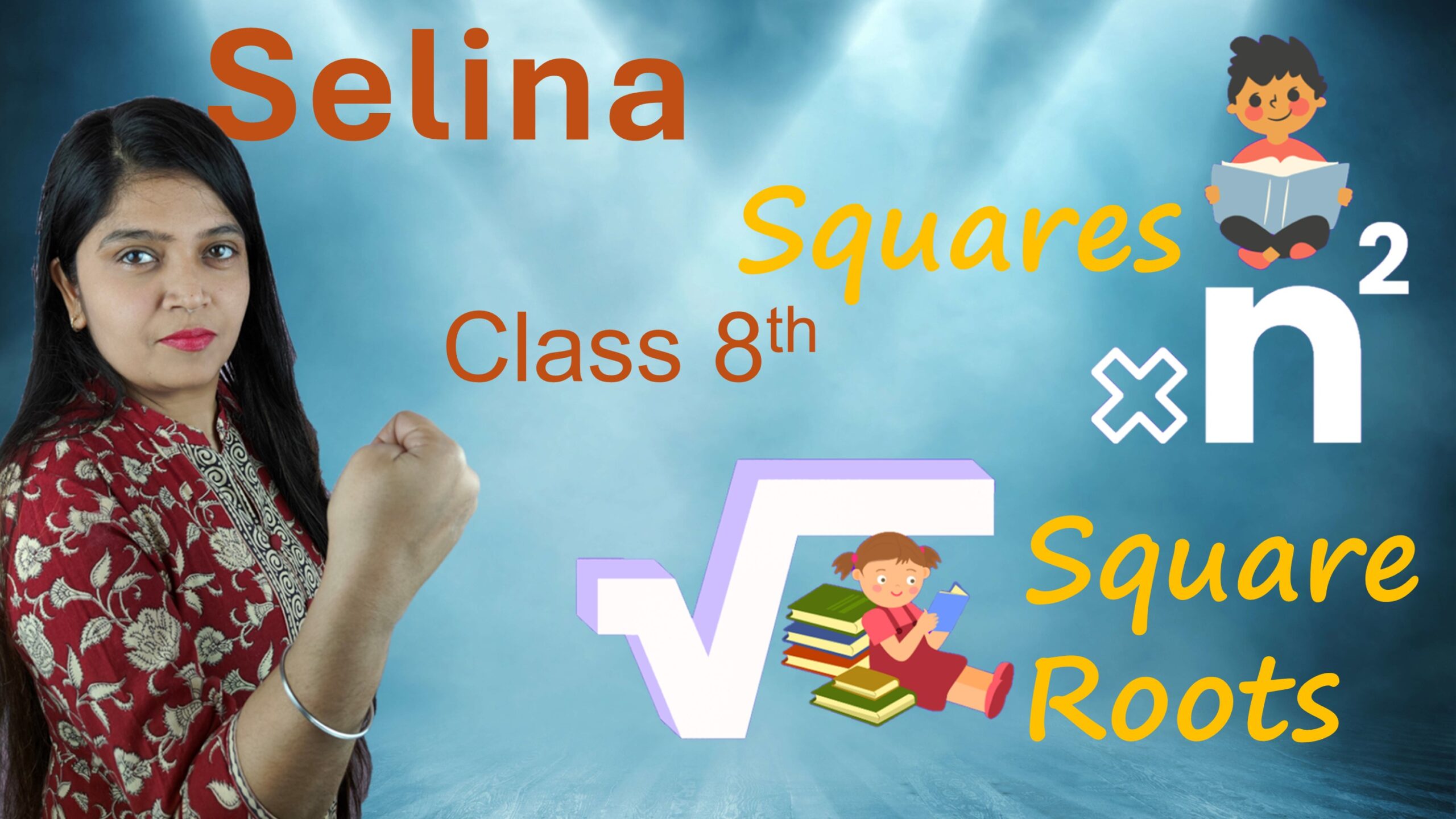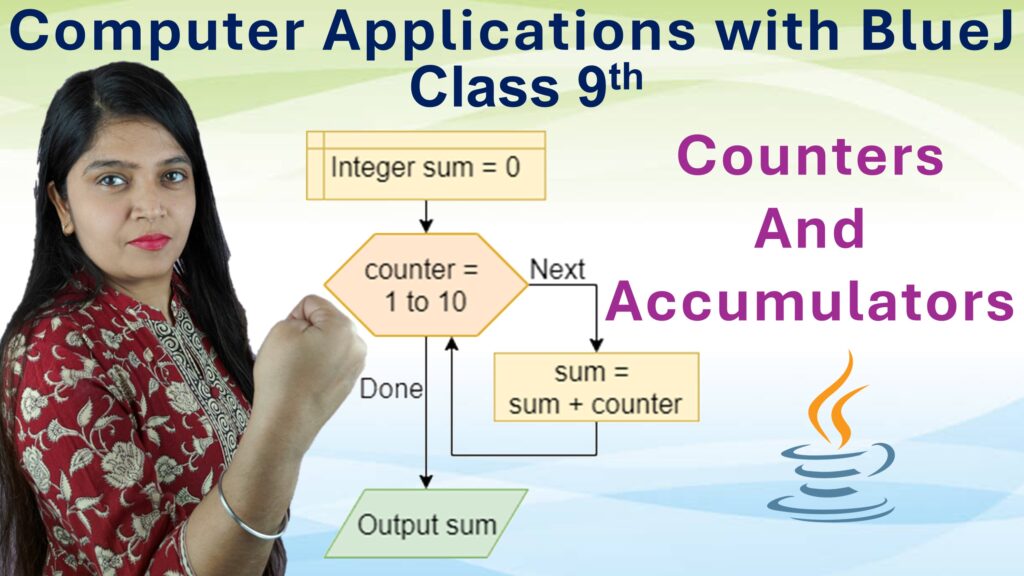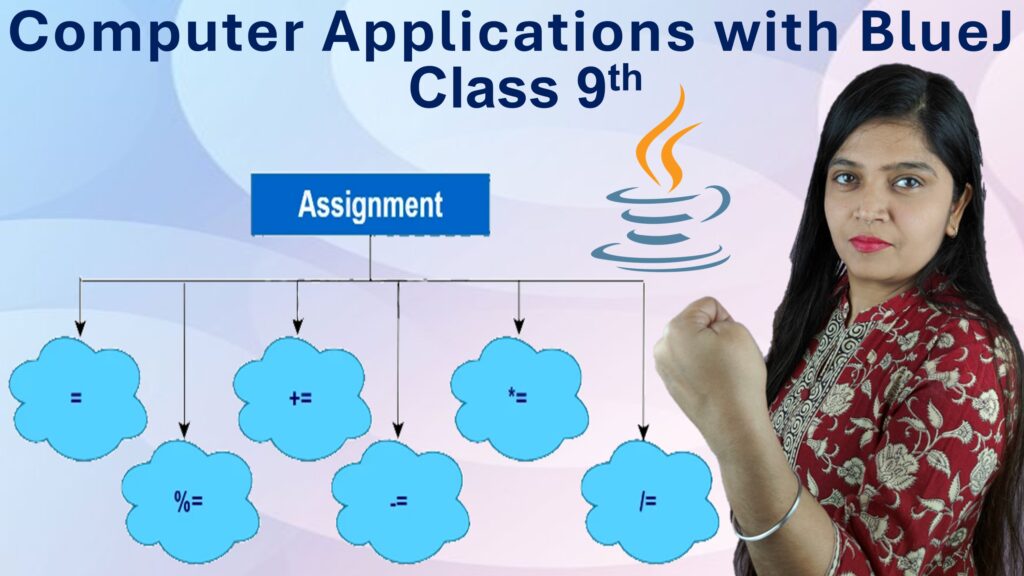Exercise: 3-C
Q1: Multiple Choice Type:
i. The value of \({18}^2-{17}^2\) is :
Step 1: Use the identity:
\[
a^2 – b^2 = (a – b)(a + b)
\]Step 2: Apply the identity:
\[
18^2 – 17^2 = (18 – 17)(18 + 17) = 1 \times 35 = 35
\]Answer: c. 35
ii. The sum of first four odd natural numbers is
Step 1: First four odd natural numbers are:
1, 3, 5, 7
Step 2: Add them:
\[
1 + 3 + 5 + 7 = 16 = 2^4
\]Answer: b. \(2^4\)
iii. \({24}^2\) has n at its unit place, the value of n is:
Step 1: Calculate \(24^2\)
\[
24^2 = 576
\]Step 2: Look at unit digit of 576 → it’s 6Answer: d. 6
iv. A number ends with 5 zeros, the number of zeros in its square will be:
Step 1: If a number ends in 5 zeros, it is divisible by \(10^5 = 100000\)
So, the number is of the form:
\[
n = k \times 10^5
\]Then:
\[
n^2 = k^2 \times 10^{10}
\]So, the square will end with 10 zeros.
Answer: c. 10
Q2: Seeing value of digit at unit’s place, state which of the following can be square of a number?
Rule:
Reminder: A perfect square number always ends with the digit:
0, 1, 4, 5, 6, or 9
It can never end with:
2, 3, 7, or 8
i. 3051
Unit digit = 1 (may be a perfect square)
Answer: Can be a perfect square
ii. 2332
Unit digit = 2 (a square number cannot end in 2)
Answer: Cannot be a perfect square
iii. 5684
Unit digit = 4 (may be a perfect square)
Answer: Can be a perfect square
iv. 6908
Unit digit = 8 (a square number cannot end in 8)
Answer: Cannot be a perfect square
Q3: Squares of which of the following numbers will have 1(one) at their unit’s place?
Rule:
Reminder:
If a number ends in 1 or 9, its square ends in 1.Let us check each:
i. 57
Unit digit = 7
⇒ \(7^2 = 49\) ⇒ Ends with 9
Answer: Will not have 1 at unit’s place
ii. 81
Unit digit = 1
⇒ \(1^2 = 1\) ⇒ Ends with 1
Answer: Will have 1 at unit’s place
iii. 139
Unit digit = 9
⇒ \(9^2 = 81\) ⇒ Ends with 1
Answer: Will have 1 at unit’s place
iv. 73
Unit digit = 3
⇒ \(3^2 = 9\) ⇒ Ends with 9
Answer: Will not have 1 at unit’s place
v. 64
Unit digit = 4
⇒ \(4^2 = 16\) ⇒ Ends with 6
Answer: Will not have 1 at unit’s place
Final Answer:
81 and 139 will have 1 at their unit’s place.
Q4: Which of the following numbers will not have 1(one) at their unit’s place?
Rule:
Step: A number will have 1 at its unit’s place only if it ends in 1 or 9.
We can also compute the square of the given numbers and observe the unit digit.
i. \(32^2\)
Unit digit of 32 = 2
\(2^2 = 4\), so square ends in 4
Answer: Will not have 1 at unit’s place
ii. \(57^2\)
Unit digit of 57 = 7
\(7^2 = 49\), square ends in 9
Answer: Will not have 1 at unit’s place
iii. \(69^2\)
Unit digit of 69 = 9
\(9^2 = 81\), square ends in 1
Answer: Will have 1 at unit’s place
iv. \(321^2\)
Unit digit of 321 = 1
\(1^2 = 1\), square ends in 1
Answer: Will have 1 at unit’s place
v. \(265^2\)
Unit digit of 265 = 5
\(5^2 = 25\), square ends in 5
Answer: Will not have 1 at unit’s place
Q5: Square of which of the following numbers will not have 6 at their unit’s place?
Concept:
Observation: A number will have 6 at its unit’s place in the square if it ends with 4 or 6.
Because:
- \(4^2 = 16\) → ends with 6
- \(6^2 = 36\) → ends with 6
i. 35
Unit digit = 5 → \(5^2 = 25\) → ends with 5
Answer: Does NOT end with 6
ii. 23
Unit digit = 3
→ \(3^2 = 9\) → ends with 9
Answer: Does NOT end with 6
iii. 64
Unit digit = 4
→ \(4^2 = 16\) → ends with 6
Answer: Ends with 6
iv. 76
Unit digit = 6
→ \(6^2 = 36\) → ends with 6
Answer: Ends with 6
v. 98
Unit digit = 8
→ \(8^2 = 64\) → ends with 4
Answer: Does NOT end with 6
Q6: Which of the following numbers will have 6 at the unit’s place:
Concept:
Observation: The square of a number ends with 6 if the number ends with 4 or 6.
Because:
- \(4^2 = 16\) → ends with 6
- \(6^2 = 36\) → ends with 6
i. \({26}^2\)
Unit digit = 6
→ \(6^2 = 36\) → ends with 6
Answer: Ends with 6
ii. \({49}^2\)
Unit digit = 9
→ \(9^2 = 81\) → ends with 1
Answer: Does NOT end with 6
iii. \({34}^2\)
Unit digit = 4
→ \(4^2 = 16\) → ends with 6
Answer: Ends with 6
iv. \({43}^2\)
Unit digit = 3 → \(3^2 = 9\) → ends with 9
Answer: Does NOT end with 6
v. \({244}^2\)
Unit digit = 4
→ \(4^2 = 16\) → ends with 6
Answer: Ends with 6
Q7: If a number ends with 3 zeroes, how many zeroes its square have?
Concept:
Step 1: A number ending with 3 zeroes can be written as:
\[
N = k \times 10^3
\]
where \(k\) is an integer not ending with zero.
Step 2: The square of the number is:
\[
N^2 = (k \times 10^3)^2 = k^2 \times 10^{6}
\]Explanation: When we square the number, the exponent of 10 doubles (from 3 to 6), so the square ends with \(6\) zeroes.
Answer: The square of a number ending with 3 zeroes will have 6 zeroes at the end.
Q8: If the square of a number ends with 10 zeroes, how many zeroes number have?
Concept:
Step 1: Let the number end with \(n\) zeroes:
\[
N = k \times 10^n
\]
where \(k\) is an integer not ending with zero.
Step 2: Then the square of the number is:
\[
N^2 = (k \times 10^n)^2 = k^2 \times 10^{2n}
\]Explanation: The number of zeroes at the end of the square is twice the number of zeroes at the end of the number.
Step 3: Given, the square ends with 10 zeroes:
\[
2n = 10
\]
\[
\Rightarrow n = \frac{10}{2} = 5
\]Answer: The number ends with 5 zeroes.
Q9: Is it possible for the square of a number to end with 5 zeroes? Give reason.
Explanation:
Step 1: Let the number be \(N = k \times 10^n\), where \(k\) is an integer not ending with zero.
Step 2: The square of the number is:
\[
N^2 = (k \times 10^n)^2 = k^2 \times 10^{2n}
\]Observation: The number of zeroes at the end of \(N^2\) is always even, since it is \(2n\).
Step 3: If \(N^2\) ends with 5 zeroes, then the number of zeroes at the end of \(N\) must be:
\[
2n = 5
\]
\[
⇒ n = \frac{5}{2} = 2.5
\]
But \(n\) must be a whole number (number of zeros in the original number).
Conclusion: Since \(n\) is not an integer, it is impossible for the square of a number to end with an odd number of zeroes like 5.
Answer: No, it is not possible for the square of a number to end with 5 zeroes because the number of zeroes at the end of a square is always an even number.
Q10: Give reason to show that none of the numbers given below is a perfect square.
- 2162
- 6843
- 9637
- 6598
Explanation:
Step 1: Check the unit digit of each number:
- 2162 ends with 2
- 6843 ends with 3
- 9637 ends with 7
- 6598 ends with 8
Step 2: Recall the possible unit digits of perfect squares:
The unit digit of a perfect square can only be 0, 1, 4, 5, 6, or 9.
Observation: None of the given numbers end with 0, 1, 4, 5, 6, or 9.
Step 3: Since none of these numbers have a valid unit digit for a perfect square, none of these numbers can be perfect squares.
Answer: None of the given numbers are perfect squares because their unit digits (2, 3, 7, and 8 respectively) are not possible unit digits of any perfect square.
Q11: State. whether the square of following numbers is even or odd?
- 23
- 54
- 76
- 75
Explanation:
Step 1: Determine whether the number is even or odd.
– If the number is even, its square is also even.
– If the number is odd, its square is also odd.
Step 2: Check each number:
| Number | Even/Odd | Square is Even/Odd |
|---|---|---|
| 23 | Odd | Odd |
| 54 | Even | Even |
| 76 | Even | Even |
| 75 | Odd | Odd |
Answer:
i. 23 → Odd number, so square is Odd.
ii. 54 → Even number, so square is Even.
iii. 76 → Even number, so square is Even.
iv. 75 → Odd number, so square is Odd.
Q12: Give to show that none of the numbers 640, 81000 and 3600000 is a perfect square.
Explanation:
Step 1: For a number to be a perfect square, all prime factors must have even powers.
Step 2: Prime factorize each number and check powers of the prime factors.
(i) 640:
\(640 = 64 \times 10 = 2^6 \times (2 \times 5) = 2^7 \times 5^1\)
– Powers are: \(2^7\) (odd), \(5^1\) (odd)
– Since powers are not all even, 640 is not a perfect square.
(ii) 81000:
\(81000 = 81 \times 1000 = 3^4 \times 10^3 = 3^4 \times (2 \times 5)^3 = 3^4 \times 2^3 \times 5^3\)
– Powers are: \(3^4\) (even), \(2^3\) (odd), \(5^3\) (odd)
– Since powers of 2 and 5 are odd, 81000 is not a perfect square.
(iii) 3600000:
\(3600000 = 36 \times 100000 = 6^2 \times (10^5) = (2 \times 3)^2 \times (2 \times 5)^5 = 2^2 \times 3^2 \times 2^5 \times 5^5 = 2^{7} \times 3^2 \times 5^5\)
– Powers are: \(2^7\) (odd), \(3^2\) (even), \(5^5\) (odd)
– Since powers of 2 and 5 are odd, 3600000 is not a perfect square.
Answer: None of the numbers 640, 81000, and 3600000 is a perfect square because their prime factorization contains primes with odd powers.
Q13: Evaluate:
i. \({37}^2 – {36}^2\)
Step 1: Use the difference of squares formula: \(a^2 – b^2 = (a+b)(a-b)\)
\(a = 37, b = 36\)
\[
37^2 – 36^2 = (37 + 36)(37 – 36) = 73 \times 1 = 73
\]
Answer: 73
ii. \({85}^2 – {84}^2\)
Step 1: Using the difference of squares formula:
\(a = 85, b = 84\)
\[
85^2 – 84^2 = (85 + 84)(85 – 84) = 169 \times 1 = 169
\]
Answer: 169
iii. \({101}^2 – {100}^2\)
Step 1: Using the difference of squares formula:
\(a = 101, b = 100\)
\[
101^2 – 100^2 = (101 + 100)(101 – 100) = 201 \times 1 = 201
\]
Answer: 201
Q14: Without doing the actual addition, find the sum of:
i. \(1 + 3 + 5 + 7 + 9 + 11 + 13 + 15 + 17 + 19 + 21 + 23\)
Step 1: Count the number of terms. The sequence is of odd numbers starting from 1.
The nth odd number = \(2n – 1\).
To find number of terms for 23:
\[
2n – 1 = 23 \Rightarrow 2n = 24 \Rightarrow n = 12
\]
There are 12 terms.
Step 2: Sum of first n odd numbers = \(n^2\).
\[
\text{Sum} = 12^2 = 144
\]
Answer: 144
ii. \(1 + 3 + 5 + 7 + 9 + \ldots + 39 + 41\)
Step 1: Find n for the last term 43:
\[
2n – 1 = 41 \Rightarrow 2n = 42 \Rightarrow n = 21
\]
Number of terms = 21
Step 2: Sum = \(n^2 = 21^2 = 441\)
Answer: 441
iii. \(1 + 3 + 5 + 7 + 9 + \ldots + 51 + 53\)
Step 1: Find n for last term 53:
\[
2n – 1 = 53 \Rightarrow 2n = 54 \Rightarrow n = 27
\]
Number of terms = 27
Step 2: Sum = \(n^2 = 27^2 = 729\)
Answer: 729
Q15: Write three sets of Pythagorean triplets such that each set has numbers less than 30.
Definition: A Pythagorean triplet consists of three positive integers \(a\), \(b\), and \(c\) such that:
\[
a^2 + b^2 = c^2
\]Three sets of Pythagorean triplets (all less than 30):
Set 1: (3, 4, 5)
Check:
\[
3^2 + 4^2 = 9 + 16 = 25 = 5^2
\]Set 2: (5, 12, 13)
Check:
\[
5^2 + 12^2 = 25 + 144 = 169 = 13^2
\]Set 3: (7, 24, 25)
Check:
\[
7^2 + 24^2 = 49 + 576 = 625 = 25^2
\]Answer: (3, 4, 5), (5, 12, 13), (7, 24, 25)







Leave a Comment